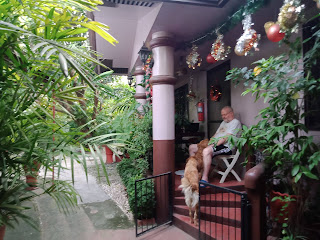By Engr. Carlos V. Cornejo *
Herbert Prochnow said, “There is a time when we must firmly choose the course which we must follow, or the relentless drift of events will make the decision for us.” I totally agree. Life is full of decision-making processes. By the time we wake up options are already made available to us. In fact, the very time we get up from bed is in itself a decision we have to make. We can choose to get up from bed by the time the alarm clock rings or decide to sleep some more.
The drift of events Herbert Prochnow mentioned can refer to circumstances in life or persons around us that could decide things for us. Usually, we make certain goals in life such as to finish college, to work abroad, to start our own business, etc. as our guide in making everyday decisions. We normally ask ourselves before making a decision, “Is this activity going to bring me closer to my goals or not?” If we don’t have a firm resolve to stick to our goals, instead of spending time studying for an exam for example we could easily make excuses such as “going out with my barkada won’t be a big deal, I only do it once in a while anyway”. But before you know it you’ve already been hooked to the group.
We ought to follow Kenneth Blanchard’s advice: “There is a difference between interest and commitment. When you’re interested in doing something, you only do it when it is convenient. When you’re committed to something, you accept no excuses, only results.” The word commitment means you are going to fulfill your promise such as fulfilling your commitment to marriage, or your commitment to your boss in the office. If we have made a commitment to get good grades for example so as to land a good job later, deciding whether to have a night out with our friends or go study for an exam will be not be a tough decision to make.
Often times the dilemma in decision making especially for managers is not to make a decision until all data is available. Waiting for additional information or data before making a final decision is a prudent thing to do especially if an important data is crucial to the decision we have to make. But if you are racing with time and any delay could make the situation worse, then you’ll have to decide as best as you can. US President Harry Truman once said, “Some questions cannot be answered, but they can be decided.” Even when we do not have all the facts available, we usually have all the facts needed to make a decision.
Of all matters, we have to be decisive with spiritual ones. If we are neutral in spiritual matters, we’ll eventually find ourselves operating against heaven. The Bible says to let the peace of God rule in our hearts (Colossians 3:15). It tells us how to decide on things, especially the important things in life with the peace of Christ as an umpire in our hearts. His peace can literally say “out” to that relationship and say “safe” to that business idea. Consulting our decisions with God through prayer is a very wise and prudent thing to do.
* Former Chairman of the Electronics Engineering Department of Mary Our Help Technical Institute, a Don Bosco Engineering School for Women in Minglanilla, Cebu. Teaches subjects on engineering, business, values and Catholic doctrine. Has Masters in Business Administration from University of San Carlos and Masters in Telecommunications Engineering from University of Melbourne.









